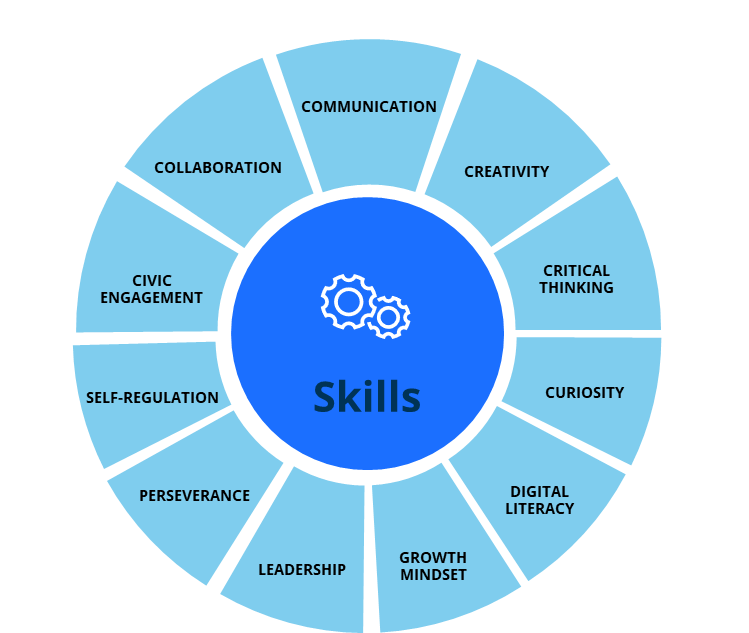ETS assessments are based on over 75 years of dedicated research in education and skill measurement. As our offerings evolve to meet the rapidly changing educational landscape, we’re committed to upholding the validity, quality, and fairness of our assessments through rigorous and evidence-based research.
Innovating and Creating the Foundation of ETS Products
The pioneers of assessment and the pioneers of the Carnegie Unit are proposing a seismic shift: to transform the Carnegie Unit and standardized assessment, and to build an educational ecosystem that focuses on skills. ETS and the Carnegie Foundation are exploring a new currency of education, one based upon meaningful skills and competencies demonstrated through assessment.
The current education system falls short in equipping students with the full range of skills and competencies required for them to succeed in K-12, post-secondary education and beyond. As described in A New Vision for Skills-Based Assessment, “Modern education has been plagued by assessment systems focusing on a limited set of cognitive skills that are easy to measure, misaligned with nonlinear educational pathways, and that miss opportunities to offer insights that are valuable for learners, educators, and policymakers. As students’ educational pathways become increasingly nonlinear and learners acquire skills from a wide range of channels both in and outside of school, assessment systems must be transformed to expand the measures of skills that matter, innovate how a wide range of skills are measured, and generate powerful insights for multiple stakeholders.”
The Skills for the Future initiative brings together ETS and the Carnegie Foundation for the Advancement of Teaching. Together, we are designing, piloting, and distributing a new suite of assessments and creating an insights system that measures and documents a set of essential skills necessary for success in career and life. This new approach will capture learning wherever and whenever it takes place – whether in after-school activities, work-experience placements, internships, and more.

This shift will anchor itself in improvement science, one in which schools, educators, administrators are incorporated as active partners in the design of the assessment system and the pedagogical practices, and model lessons. We bring together schools and educators from various locations to collaboratively explore best practices and models that support students to develop essential skills. We also engage higher education institutions, employers, policy makers, and philanthropic foundations in shaping the priorities of this initiative.
Carnegie Foundation, ETS Partner to Transform the Educational Pillars They Built: The Carnegie Unit and Standardized Tests –
To address long-standing issues across generations, declining reading scores prior to the global pandemic, and learning disruptions post-pandemic, the Literacy for All initiative is focused on optimizing learning and developmental trajectories in literacy from childhood to adulthood.
- Literacy is an invaluable, global asset. It is the key to unlocking opportunities – educational, professional, and financial – empowering informed decision-making, self-advocacy, and societal engagement. Literacy is a catalyst for positive change.
- Proof points:
- 60%+: America's 4th, 8th, and 12th-grade students don’t reach standard levels of proficiency in vital reading and writing skills essential for learning (NAEP)
- 50%+: U.S. young adults fall below the minimal threshold (Level 3) in literacy skills crucial for work and daily life (PIAAC)
- Proof points:
- We envision a comprehensive and integrative learning and assessment system that identifies skill challenges where they exist and provides tools and strategies to solve them along the path to literacy.
- Our solution will be centered on an integrated literacy framework that builds upon previous research and identifies thresholds that will optimize learning and developmental trajectories in literacy from childhood to adulthood.
